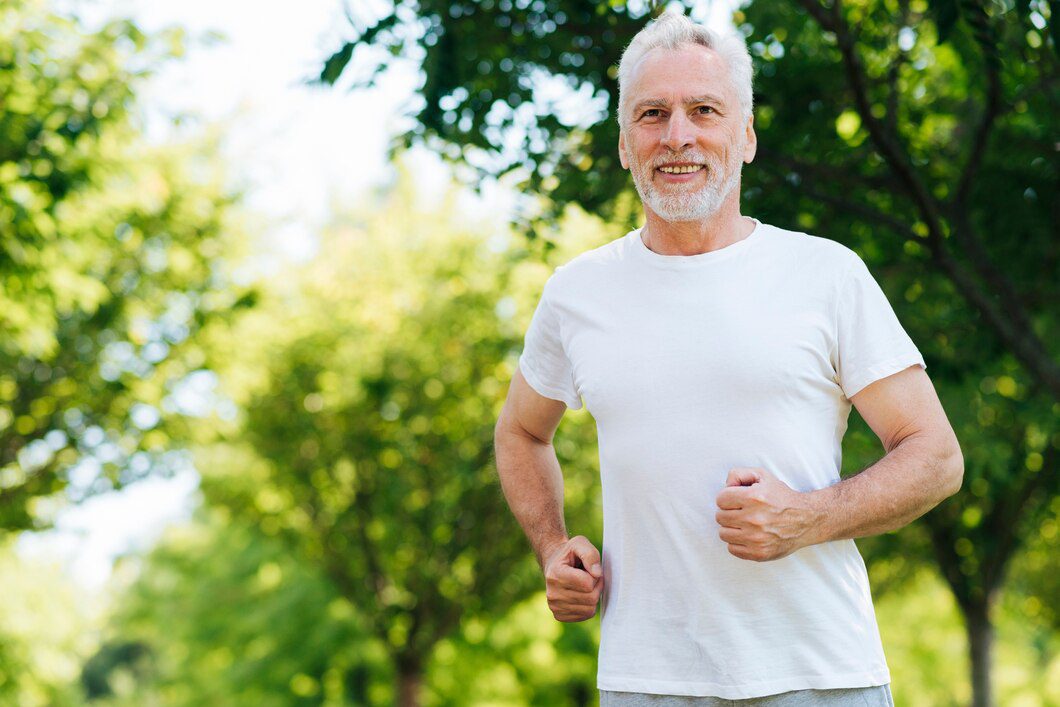What Are the Effects of Exercise On Mental Health…
Imagine a world where the worries wash away with each Step You take, anxiety lifts with each weighted lift, and the chaos of life finds harmony in every breathing of mindfulness.
This isn’t any myths or only sentences but it is backed by science and experienced Countless people who have embraced the power of Physical movement.
Our brain, The master architect of our thoughts, emotions, and feelings, can make a superb connection with exercise.
When we engage in daily exercise practices, our brain experiences a wonderful dance of chemicals.
For instance,
• Endorphins which are like happy dancers, move through the brain pathway and make stress, which can bring feelings of peace and feelings of happiness.

• Serotonin conductor of joy, creates beautiful harmony, calming our anxious feelings, and can show us the way to emotional balance.
But the wonders of exercise don’t end there. As we dive deeper into these amazing insightful articles we can understand How Physical Exercise can Affect Mental Health.
We won’t walk alone. Together, we will experience the warmth of community, where people support each other on their journey to mental health.
But like any adventure, There are Challenges. Don’t worry because we will face them and share strategies to overcome the challenges, overcome obstacles, and the lasting joy of exercise.
So, Lace up Your Shoes, Unroll Your Yoga Mat, and be prepared to elevate your mind and energize your soul…
And
Let’s Understand…
Effect Of Exercise On Mental Health…
Exploring Connection Between Mind-Body | Exploring Science Behind Truth…
Did You Know? , when we engage in exercise our brain releases more special chemicals called hormones that help to regulate our mood and other cognitive procedures.
These chemicals known as endorphins and serotonin, help to bring joy, happiness, and peace by removing stress and anxiety.
Taking care of mental health is also crucial, same as Physical health.
Sometimes life’s challenges create chaos in our minds leaving us anxious, stressed, and sometimes downhearted. But don’t worry because engaging in exercise can be an ally or companion to face the issues.
Addressing mental health issues is essential because they can affect how we feel, act, and behave in front of someone.
Engaging in regular exercise can contribute to a decrease in depression, break Anxiety Grip, and boost overall mood and cognitive abilities.
Let’s Explore the Secrets of a Healthier and happier life through the transformative power of Exercise…

Exploring Science Behind the Connection Between Physical Exercise & Mental Health
Let’s Explore the scientific scenarios, That show How Exercise can Heal your mental health or how exercise can affect your mental health…
Numerous research Studies have proved the positive impact of physical activity on our minds.
Our brain is an incredible organ that controls our emotions, thoughts, actions, and onwards…
When we exercise, It Triggers the release of special chemicals called endorphins, serotonin, and dopamine.
These chemicals play a vital role in making us feel good and happy.
Let’s see, some inner side of these chemicals…
Endorphins are like little mood boosters that our brain releases during exercise.
These specialist’s chemicals or hormones help to reduce stress and leave peace and happiness. That’s why we feel good after a good workout session…
Dopamine is another hormone released by the brain during exercise. This chemical is known as a “feel-good” chemical because it gives a sense of pleasure and motivation.
When dopamine is released, it makes us feel good, rewarded, and satisfied. These feelings are enough to keep us on track of our fitness goal…
Serotonin is a magical chemical that brings joy. It helps in soothe our anxious hearts and lightens our mood.
Due to releasing serotonin levels, we feel a mesmerizing harmony of emotions, feeling more at ease and emotionally balanced.
The effectiveness of these chemicals is not Temporary, but they create a long-lasting effect by rewiring our brain over time, making us more resilient to stress and improving our overall mood.
It looks like a natural remedy for mental well-being. So the science behind these is clear – When we exercise our brain releases special chemicals that lift our spirits, reduce stress, and contribute to a better mood.
Embracing Physical Exercise in our routine can have a positive impact on our mental and emotional well-being…
Additionally, Exercise can boost our cognitive function like, thinking, learning, and memory. So, If you ever forget things then exercise might be the solution to help sharpen your memory.
Types Of Exercise & How They Can Beneficial for Mental Health.
Let’s know different types of exercise that can have a positive impact on our mental well-being…
Aerobic Exercise
These are activities that pump our hearts faster than normal and make us breathe faster. Aerobic Exercise includes different types of Exercise like Cycling, walking, swimming, and dancing.
Aerobic Exercise is the magical healing potion for our brain that lifts our mood and reduces stress and anxiety.
These exercises also help to improve blood circulation to the brain, they will increase the capacity to think more clearly and enhance our memory.
Strength Training
This involves using weights, resistance bands, and body weight exercises to strengthen our muscles. Strength Training is not just for our body but also for our brain, it brings self-confidence and self-esteem as we see ourselves getting stronger.
When we feel more confident, it positively impacts our mental health and helps us to challenge life’s challenges with greater resilience.

Yoga
Yoga is made from a combination of breathwork, meditation, and gentle movement. Yoga is just a soothing balm for our mind as yoga contributes to reducing stress and calming our thoughts.
Mindful breathing and focus during yoga can promote relaxation and inner peace.
Yoga also helps to understand the body-mind Connection, which makes us more aware of our emotions and reduces anxiety.
Mindfulness Practice
Mindfulness involves being fully present in the current moment without judgment. Mindfulness also involves activities like meditation and deep breathing.
Mindfulness just acts as a reset button for our mind, which allows us to be in the present and helps to reduce worries about the past and future.
Swimming
Taking a dip in a swimming pool or any other natural body of water( Sea, Lake, or River) can be incredibly refreshing for both body and mind.
Swimming is a full-body workout that enables the production of endorphins and helps to reduce tension and stress.
Nature walks
Spending time in natural places, such as hiking or leisurely walks can have a profound impact on our mental health.
Being surrounded by greenery and fresh air can calm our minds, reduce feelings of stress, and boost our mood.
Dancing
Dancing is not just a fun activity, but it is also a fantastic way to boost our mood and reduce stress.
dancing to our favorite songs joining dancing classes, and moving our body parts to the rhythm of songs can bring joy to the hearts and elevate the level of endorphins.
Cycling
Cycling is not just a great way to stay physically active, but it is also a meditative and stress-relieving activity.
Whether outdoors cycling or using stationary Cycling, the rhythmic motion of body parts can clear our minds and improve our mental well-being.
Tai chi
Tai chi is a gentle and ancient Chinese practice that combines slow, gentle movement with deep breathing and meditation. This graceful exercise can promote relaxation, reduce anxiety, and improve overall well-being.
Aqua-Aerobic
Aqua aerobic, also known as Water aerobic, is a low-impact exercise performed in water.
The buoyancy of water reduce impact on joints which makes it an effective option for people of all ages and fitness level.
Sports
Engaging in group sports like volleyball, soccer, cricket, and basketball can be a strategic solution for engaging in physical activity with social interactions.
Group sports can be an effective solution to reduce loneliness and foster mental resilience.
Role of Exercise in Managing Mental Disorders
Let’s explore how exercise can be an effective solution for most common mental health disorders.
Exercise acts like complementary therapy, meaning it works alongside other treatments to support mental well-being.
Exercise vs. Depression
For people looking for complete remedies for depression, engagement in regular exercise can prove beneficial.
Exercise releases chemicals called endorphins, which improve mood and reduce feelings of sadness.
Additionally, Regular exercise can give feelings of accomplishment and improve self-esteem.
Exercise vs. Anxiety Disorders
Exercise is a great companion for managing anxiety.
It helps lower anxiety levels by reducing stress and promoting relaxation.
Exercise vs Post-Traumatic Stress Disorder
For people with PTSD, Exercise can offer a sense of control and empowerment.
It reduces symptoms of stress and helps in managing hyperarousal which are known to be common features of PTSD.
Exercise vs Burnout
Exercise plays a vital role in stress management and prevents burnout.
When we’re stressed and overwhelmed our body gets wear and tear. But regular engagement in exercise can help us to cope with stress. As it reduces the stress hormone cortisol and promotes more balanced hormones.
Exercise also provides a needed break from the daily grind, giving our minds to recharge. Additionally, it prevents burnout a feeling of being emotionally and physically exhausted from the constant stress.
Exercise vs Self-esteem
Regular physical activity can do wonders for our self-esteem and body image, eventually leading to better mental health.
Due to regular exercise, our body releases feel-good chemicals Known as endorphins and these chemicals make us feel happy and confident.
This happy mind can improve how we see ourselves and our bodies.
As we become more active and achieve fitness goal we feel a sense of accomplishment, which further enhance our self-esteem.
Exercise vs Social Activity
Exercise is a wonderful way to overcome your loneliness and promote social gatherings.
Whether it’s going for walks, joining fitness classes, or playing team sports, exercise provides opportunities for social engagement which helps to overcome loneliness.
Benefits Of Exercise In Mental Health
Exercise offers a multitude of benefits for mental health.
Let’s Explore the different mental health benefits of exercise.
Reduce stress & anxiety
Exercise is a natural stress buster, It helps to elevate endorphin levels in the body which makes you feel happy.
These chemicals provide relaxation and calmness, eventually, your stress levels will reduce.
Improve mood
Exercise has a profound impact on our mood. It can lift our spirits, boost happiness, and reduce feelings of sadness and depression.
Regular physical exercise can stimulate neurotransmitters like dopamine and serotonin which plays a crucial role in regulating and managing our emotions and promoting a positive outlook.
Enhance Cognitive function
Exercise can improve blood circulation flow to the brain promoting better brain health and improving your ability to think, improving memory, focus, and attention.
Boost self-esteem
Regularly engaging in exercise can boost our self-esteem and body image.
As we do more exercise we gain a sense of accomplishment and confidence in our abilities.
Promote better sleep
Regular exercise can promote a better sleep cycle and improve the quality of sleep.
It helps to regulate our sleep-wake cycle and makes it easier to fall asleep and stay asleep.
Reduce the risk of mental health
Studies have shown that people who regularly engage in exercise are more likely to get mental health issues such as depression and anxiety etc…
Decrease feelings of loneliness
Engaging in groups sports exercise or community can provide opportunities for social interaction which helps to overcome your loneliness.
Increased brain plasticity
Exercise supports brain plasticity which is the brain’s ability to adapt and form new connections.
This can aid in mental health conditions and increase cognitive flexibility.
Improve Self-confidence
Regular exercise can improve our self-confidence and look at the body regardless of size and shape.
Promote a sense of achievement
Setting and achieving fitness goals can provide a sense of accomplishment, boosting our self-esteem and motivation to continue to stay on the path of fitness goals.
Alleviate seasonal affective disorder
Exercise can help to mitigate symptoms of seasonal affective disorder by increasing exposure to natural light and enhancing mood.
Positive impact on attention deficit hyperactivity disorder (ADHD).
Routine engaging in exercise can improve cognitive functions such as memory, focus, attention, and impulse control in individuals with ADHD.
Prevent cognitive decline
Exercise has been linked to preventing cognitive decline and neurodegenerative disease as we age which promotes brain health for a long time.
Increased Coping skills
Regular exercise can help us to cope with life’s challenges. It fosters resilience and equips us with the best coping skills to handle stress, setbacks, and difficult emotions.
Reduce Negative thoughts
Exercise can serve as a healthy distraction from negative thoughts and worries. When we focus on physical activity our brain becomes free from ruminating stressful thoughts.
Overcoming Barriers To Exercise
Different types of barriers that prevent us from doing regular exercise are given below.
1. Boredom
If you find yourself bored during your regular commitment to exercise then you can try new different styles of exercise, You can play music while exercising, and different workout styles.
2. All-or-nothing Thinking
Don’t think that you have to do the perfect steps & stages of exercise.
Because is wrong thinking for beginners as you have to continue your exercise from only a single step.
Or nothing Thinking can prevent you from doing regular exercise.
3. Fatigue or stress
Feeling tired or stressed can deter you from doing regular exercise.
To overcome this condition we need to move slowly on the path of improving ourselves.
We have to start with gentle exercises such as yoga, gentle movement walking, etc.
As you build momentum, you’ll find that exercise helps to increase your energy level and reduces stress in the long run.
4. Time Constraints
Many of us live a fast-paced life, so finding the right and best time for exercise can be difficult.
But don’t ignore short sessions of exercise, as small sessions of exercise can be better for you.
Take a brisk walk during lunch breaks, attend quick workouts at home, and stretch before bedtime.
5. Lack of Motivation
It’s natural to have when we feel a lack of Motivation. One way to overcome this is by finding and doing exercise activities that you love to do such as dancing, cycling, running, walking, hiking, playing sports, and much more.
This activity doesn’t need motivation, after you engage in a particular duration of exercise you don’t need motivation even for hard and real exercise.
Conclusion
Incorporating into our daily routine is not just about physical fitness, but it is a holistic approach to Mental Health wellness.
It offers powerful ways to improve moods, self-awareness, self-esteem, and confidence, reduce stress, and improve overall well-being.
Whether it’s walking, dancing, playing sports running or any form of physical activity the benefits of exercise on mental health are vast and transformative.
☆ Ends on Positive Note:-
Let’s embrace the power of Physical Activity for Mental Health wellness, leading to a happier, healthier, and more fulfilling life.
Remember, The Journey to improve mental well-being starts with a single step towards an active and balanced lifestyle.
☆ Reference:
1. National Library of Medicine
2. MDPI
3. HealthLine
Subscribe to our blog post for further updates and the latest blog posts related to your Physical health, Mental health, and Personal development.
We hope that you are deriving numerous benefits from our blog.
Be healthy!
Be happy!
Thank you…
Visit again…
••••••••••》Foraj_Health_Creation《•••••••••••